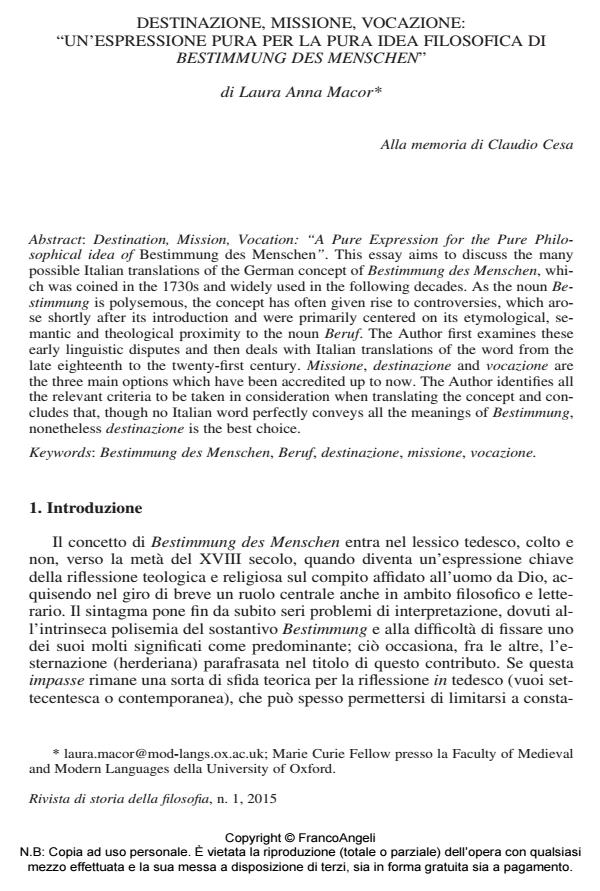Destinazione, missione, vocazione: "un’espressione pura per la pura idea filosofica di bestimmung des menschen"
Titolo Rivista RIVISTA DI STORIA DELLA FILOSOFIA
Autori/Curatori Laura Anna Macor
Anno di pubblicazione 2015 Fascicolo 2015/1
Lingua Italiano Numero pagine 39 P. 163-201 Dimensione file 644 KB
DOI 10.3280/SF2015-001012
Il DOI è il codice a barre della proprietà intellettuale: per saperne di più
clicca qui
Qui sotto puoi vedere in anteprima la prima pagina di questo articolo.
Se questo articolo ti interessa, lo puoi acquistare (e scaricare in formato pdf) seguendo le facili indicazioni per acquistare il download credit. Acquista Download Credits per scaricare questo Articolo in formato PDF

FrancoAngeli è membro della Publishers International Linking Association, Inc (PILA), associazione indipendente e non profit per facilitare (attraverso i servizi tecnologici implementati da CrossRef.org) l’accesso degli studiosi ai contenuti digitali nelle pubblicazioni professionali e scientifiche.
This essay aims to discuss the many possible Italian translations of the German concept of Bestimmung des Menschen, which was coined in the 1730s and widely used in the following decades. As the noun Bestimmung is polysemous, the concept has often given rise to controversies, which arose shortly after its introduction and were primarily centered on its etymological, semantic and theological proximity to the noun Beruf. The Author first examines these early linguistic disputes and then deals with Italian translations of the word from the late eighteenth to the twenty-first century. Missione, destinazione and vocazione are the three main options which have been accredited up to now. The Author identifies all the relevant criteria to be taken in consideration when translating the concept and concludes that, though no Italian word perfectly conveys all the meanings of Bestimmung, nonetheless destinazione is the best choice.
Parole chiave:Bestimmung des Menschen, Beruf, destinazione, missione, vocazione.
Laura Anna Macor, Destinazione, missione, vocazione: "un’espressione pura per la pura idea filosofica di bestimmung des menschen" in "RIVISTA DI STORIA DELLA FILOSOFIA" 1/2015, pp 163-201, DOI: 10.3280/SF2015-001012